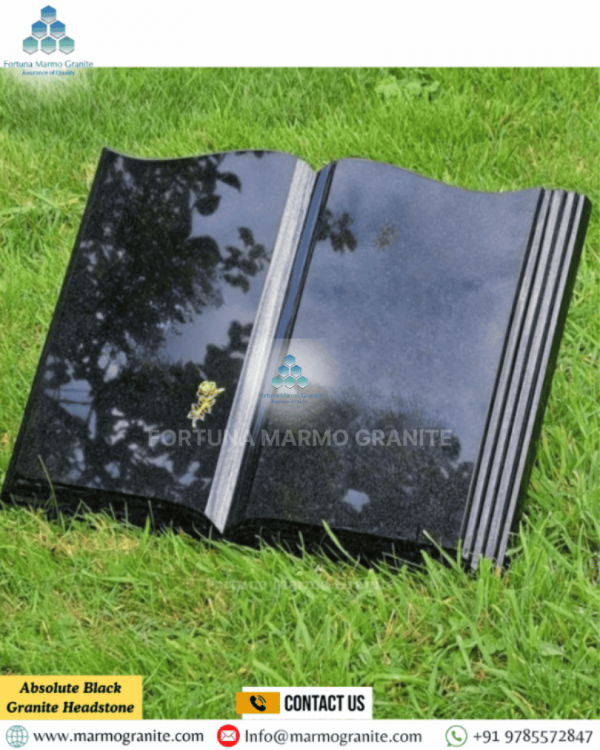The Ultimate Guide to Choosing Granite Cemetery Headstones from India
Granite Cemetery Headstones from India Losing someone dear leaves a void that words often cannot fill. During such times, finding meaningful ways to honor their memory becomes an important part of the healing process. One of the most enduring ways to commemorate a loved one's life is through a headstone — a permanent marker that captures the essence of their legacy and ensures they are never forgotten. More than just stone, a headstone serves as a tribute to cherished memories, a place for reflection, and a symbol of the bond that continues beyond death.
Among the many materials for memorials, granite is the most reliable and elegant choice. It is known for its strength, resistance to weathering, and natural beauty. Granite offers both practicality and aesthetics. Over the years, it has proven to endure, staying intact and polished even in harsh conditions. Its durability, along with the ability to customize finishes, carvings, and inscriptions, makes it perfect for monuments that honor the unique spirit of the departed.
Why Choose Indian Granite for Headstones?
Unrivaled Durability and Longevity
Granite is formed deep within the Earth's crust under immense heat and pressure, resulting in a stone that is exceptionally hard and dense. This inherent strength makes it incredibly resistant to weathering, erosion, and impact. Indian granite, in particular, boasts:
- High Compressive Strength: It can withstand significant weight and pressure without cracking or deforming, ensuring the structural integrity of the headstone for centuries.
- Low Porosity: Unlike many other stones, granite has very low porosity, meaning it absorbs minimal water. This is crucial in preventing damage from frost wedging (where absorbed water freezes, expands, and causes cracks) and makes it highly resistant to staining from environmental pollutants, moss, and algae.
- Abrasion Resistance: The hardness of granite makes it highly resistant to scratching and abrasion, preserving the polished surface and intricate engravings even in outdoor environments.
- Chemical Resistance: Indian granite is largely inert to most common acids and alkalis found in the environment, further protecting it from chemical weathering and degradation. This ensures the memorial retains its original appearance and legibility over time.
Cost-Effectiveness
Despite its superior quality, durability, and stunning visual appeal, Indian granite continues to stand out in the global market for its competitive pricing. Compared to granite sourced from other countries, it offers exceptional value. One key reason for this affordability is the vast natural reserves found across India, especially in Rajasthan, Karnataka, Andhra Pradesh, and Tamil Nadu. These regions produce a wide range of granite types, from classic black and white to exotic shades of red, green, blue, and pink. In addition to natural abundance, India has built an efficient infrastructure for quarrying, cutting, polishing, and processing granite.
Granite Cemetery Headstones, With modern machinery, skilled labor, and easy access to ports, Indian manufacturers produce world-class slabs and tiles at lower costs. The industry's competitive nature, with many suppliers offering high-grade products, keeps prices affordable without compromising quality. Granite Cemetery Headstones, This advantage makes Indian granite an excellent choice for both residential and commercial projects worldwide. Builders, architects, and homeowners can access premium materials that fit within budget while maintaining top standards of beauty and durability
The Selection Process: A Step-by-Step Guide
Understanding Your Needs and Preferences
Before you even start looking at specific granite types, consider the following:
- Cemetery Regulations: Most cemeteries have strict rules regarding the size, material, and even color of headstones allowed. Confirm these regulations first to avoid any issues.
- Personal Style and Symbolism: What kind of memorial best reflects the individual? Consider their personality, hobbies, beliefs, and any cultural or religious considerations. Do you envision a traditional, classic monument, or something more contemporary?
- Design and Inscription: Think about the inscription – name, dates, a personal message, a quote, or a verse. Consider the font style and size, as well as any symbolic elements or artwork you might want to engrave. Granite's uniform hardness allows for clean, precise cuts and detailed carvings.
- Budget: Headstone costs can vary widely depending on the granite type, size, complexity of design, and customization. Establish a realistic budget from the outset.
Researching and Selecting Granite Types
- Explore Colors and Finishes: Look at samples, both online and in person if possible. Consider how the color will interact with the inscription and the surrounding environment. Granite can also have various finishes, including polished (high sheen, reflective), honed (matte, smooth), flamed (textured, rough), and brushed (smooth with a slight texture). Each finish creates a different aesthetic and can influence maintenance.
- Consider Grade and Quality: Higher-grade granite typically has fewer imperfections, more consistent texture, and uniform color. While Indian granite is generally high quality, discussing the grade with your supplier is always a good idea.
- Popular Indian Granites for Headstones: Some of the most popular and reliable Indian granites for monuments include:
- Absolute Black: Classic, deep black, excellent for contrast.
- Black Galaxy: Black with shimmering gold flecks.
- New Imperial Red/Ruby Red: Vibrant, deep red.
- Lakha Red: Consistent, spotless red.
- Tan Brown: Rich, earthy brown.
- Viscount White: White-grey with fluid patterns.
- Moon White: White-grey with wine-colored garnets.
Maintenance of Granite Headstones
Regular Cleaning: Wash the surface with water and a soft brush to remove dirt and grime. Avoid using harsh chemicals or abrasive cleaners.
Moss and Algae Removal: For stubborn growth, apply specialized monument cleaners that are safe for granite.
Sealing (Optional): Granite is naturally low in porosity, but some lighter colors may benefit from sealing. A sealant can improve stain resistance, especially in areas prone to heavy staining. Consult your supplier for guidance.



